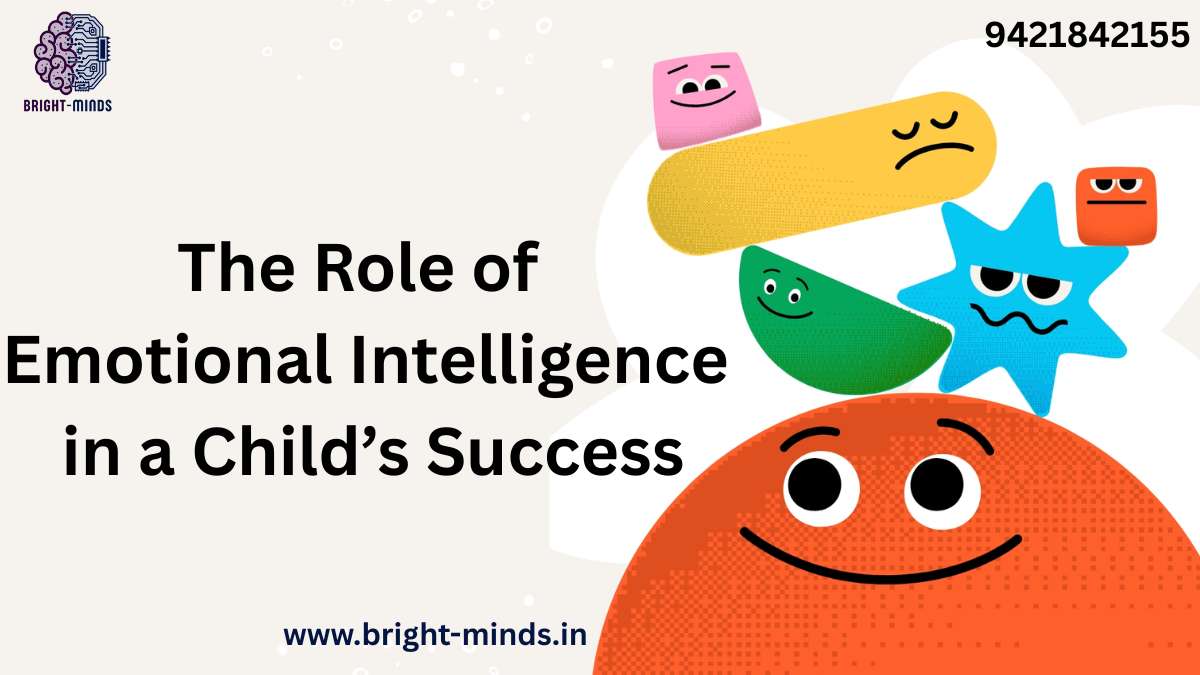When we think about a child’s success, academics, grades, and technical skills often take the spotlight. But research and real-world experience show that there’s another, equally important factor shaping a child’s future: Emotional Intelligence (EI). Unlike IQ, which measures raw intellectual ability, EI focuses on a child’s ability to understand, manage, and express emotions—skills that are vital for personal growth, strong relationships, and long-term achievement.
In today’s world, where soft skills are just as important as technical expertise, nurturing emotional intelligence in children has become a cornerstone of holistic education. Let’s explore why EI matters, how it impacts a child’s future, and what parents, educators, and even employers can learn from this rising trend.
What Is Emotional Intelligence?
Emotional Intelligence is the ability to recognize, understand, and manage our own emotions while also being sensitive to the emotions of others. For children, this means:
- Recognizing when they feel happy, sad, or frustrated.
- Managing impulses like anger or disappointment in healthy ways.
- Showing empathy toward peers, teachers, or family.
- Building resilience in the face of challenges.
These emotional skills provide the foundation for decision-making, teamwork, leadership, and stress management later in life.
Why Emotional Intelligence Matters for Children
- Stronger Academic Performance
Studies show that children with higher EI perform better academically. They can manage test anxiety, communicate clearly with teachers, and work effectively in groups. - Improved Social Relationships
Children who practice empathy and active listening are more likely to form lasting friendships and resolve conflicts peacefully. - Better Mental Health
Emotional awareness reduces stress, anxiety, and negative self-talk. Children with higher EI develop confidence and resilience, which helps them cope with setbacks. - Future Career Readiness
Employers today emphasize collaboration, leadership, and adaptability—skills rooted in emotional intelligence. By starting early, children are better equipped for the demands of tomorrow’s workplace.
Industry Insights: EI as the New Workplace Currency
Over the last decade, emotional intelligence has shifted from being “nice-to-have” to “must-have” in workplaces across industries. Tech companies, schools, and corporate training programs now integrate EI into their curriculums. For example:
- Schools: Some progressive institutions teach “social-emotional learning” alongside math and science.
- Corporations: Global leaders like Google and Microsoft encourage emotional intelligence training to build stronger teams.
- Market Trends: A 2024 LinkedIn report revealed that 92% of talent professionals believe soft skills, especially EI, are just as important as hard skills.
This shows a clear connection between emotional intelligence nurtured in childhood and success in adulthood.
Practical Tips to Build Emotional Intelligence in Children
- Model Emotional Awareness at Home
Parents who talk openly about their emotions—“I feel frustrated because of traffic”—help children learn to recognize and name feelings. - Encourage Journaling or Storytelling
Writing about or narrating daily experiences builds self-reflection and empathy. - Teach Problem-Solving Through Games
Board games and role-playing activities help children understand teamwork, patience, and strategy while managing emotions. - Use Positive Reinforcement
Celebrate moments when your child handles emotions well, like calming down instead of reacting impulsively. - Incorporate Mindfulness Practices
Simple breathing exercises or meditation help children regulate emotions and focus better.
Real-World Example: How EI Shapes Success
Consider two students preparing for a group project. One has high EI—they listen, collaborate, and manage stress. The other, though academically strong, struggles with teamwork and conflict resolution. Guess who leaves a lasting impression on teachers and peers? The child with emotional intelligence not only delivers results but also builds trust, leadership skills, and confidence.
How Companies Can Benefit from EI in Early Education
Forward-thinking organizations now recognize the long-term value of emotionally intelligent employees. Supporting programs that nurture EI in children—through CSR initiatives or employee family support programs—benefits companies in the long run. Employees’ children grow up with balanced emotional skills, leading to a more harmonious workplace culture in the future.
Taking the First Step
Just like financial literacy, emotional intelligence is a lifelong asset. By helping children develop these skills early, parents and educators set them up for healthier relationships, stronger academics, and career success.
👉 Ready to dive deeper into strategies and tools for nurturing emotional intelligence in children? Explore our advanced courses and learning resources on our website and take the first step toward shaping a brighter, emotionally intelligent future for the next generation.
Also Read:
https://bright-minds.in/unlocking-word-meaning-for-class-ukg-english-to-hindi/

